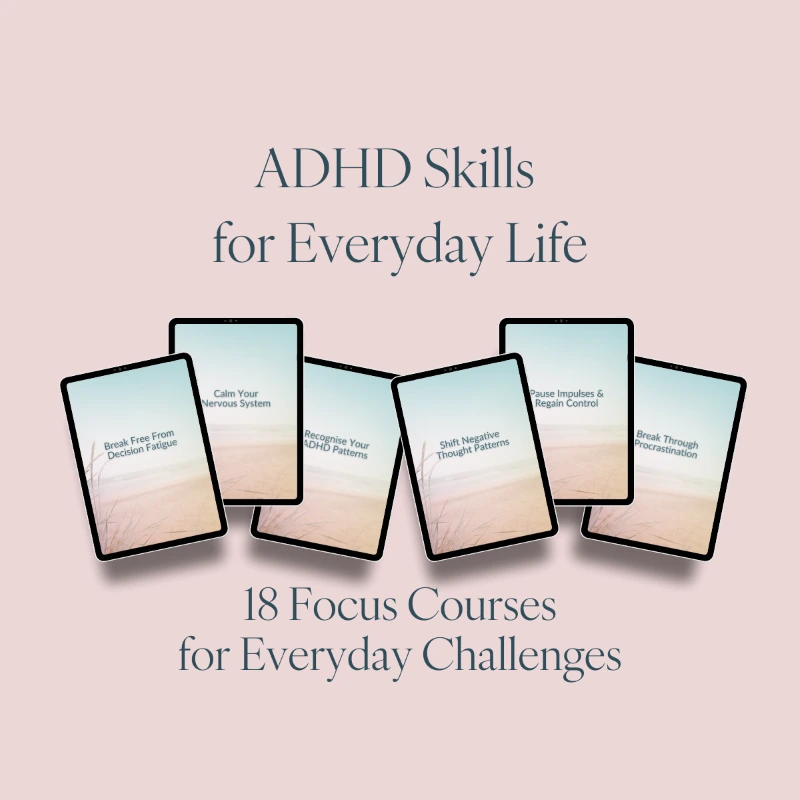Living with ADHD isn’t about lacking effort or motivation, it’s about managing a brain that works differently in a world that doesn’t often make space for that.
You’re probably juggling more than most people realise. Holding together work, home, emotions, and a thousand open tabs in your mind. No wonder it feels exhausting.
The good news? There are small, manageable things you can do that help, things that don’t rely on superhuman discipline or perfect routines. Just practical shifts that make life feel a little less overwhelming.
Here are five simple tips I often share with clients in ADHD coaching sessions that can make a real difference without adding more pressure.
1. Use Timers to Get Started (Not Finish)
One of the most complex parts of ADHD is getting going. Whether it’s an email, a phone call, or the washing up, starting can feel like pushing through wet cement.
Try setting a timer for 5 or 10 minutes, not to finish the task, but just to begin.
Once the pressure to “get it all done” is gone, your brain has a better chance of engaging. And if it still feels hard? You can stop. Starting is the win.
2. Name What’s Happening
ADHD often comes with internal noise, guilt, shame, racing thoughts, and overwhelm. You might feel stuck or panicked, but try to carry on like everything’s fine.
Instead, try naming what’s happening: “I’m overwhelmed,” “I’m overstimulated,” or “I’ve hit a wall.”
This might sound too simple, but it works. Labelling what you’re feeling helps your brain shift from chaos to clarity, and gives you more control.
3. Build in White Space
If your calendar is packed with back-to-back meetings, errands, or childcare, your nervous system never gets to reset.
Add a few of slots of ‘white space’, short breaks between tasks, even just five minutes to breathe or stare at a tree.
White space isn’t lazy. It’s essential, especially for ADHD brains that need time to shift gears.
4. Have a Reset Cue
Sometimes, you need just one small thing to help interrupt a spiral. That might be:
- A sticky note that says “pause.”
- A physical object you touch when you’re overstimulated
- A short grounding phrase like “I’m safe, I’ve got time, I can do this.”
These tiny cues help pull you out of autopilot and give your brain a moment to reset.

5. Celebrate the Tiny Wins
ADHD brains often struggle to register success, especially if you’ve been taught that only big, finished things count.
But the truth is, the little wins are the big wins.
Did you reply to an email? That counts. Left the house on time? That counts. Did you take a break before burnout hit? Definately Counts!
Noticing and celebrating your effort, especially when things feel hard, helps shift your brain’s focus from failure to progress.
It’s not just mindset. It’s neuroscience.
One Step Is Enough
You don’t need to fix everything overnight. You don’t need the perfect routine or perfect motivation. Just one small change is enough to start making life a little easier.
If you try one this week, make sure you give yourself credit. That’s the work.
If motivation and focus are areas you’d like a bit more support with, you may find my Boost Your Motivation and Focus course helpful. It’s designed for ADHD brains and builds on these ideas with gentle, practical tools you can use in everyday life, without pressure or perfection.






